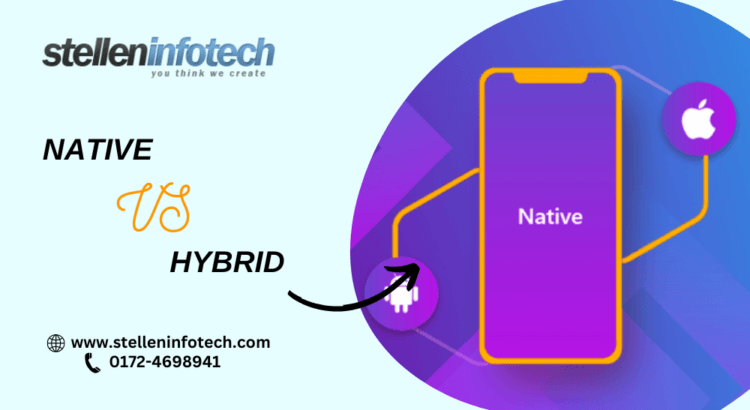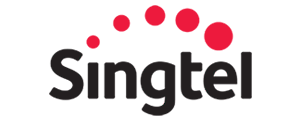Selecting the best technological stack for app development is a hot topic of all times. Every business faces this question once they decide to digitalize their presence with a mobile application. Choosing the best development approach helps build a world-class mobile application. Wondering what to select among hybrid and native app development routes for your upcoming mobile application? Undoubtedly, both have their advantages and limitations.
While hybrid applications promise fast development and work across numerous platforms, native applications provide more flexibility with integration opportunities. These opportunities include integrating phone elements including camera, GPS, microphone, and much more. Businesses aim at providing users with the best-performing applications, easily accessible across the globe. Understanding these development approaches will help select the one that best suits your business action-goals.
Let’s learn about these approaches and the pros and cons of the same to make the ultimate selective decision. The right decision can avoid potential challenges in the development process.
Hybrid VS Native Application Development – Quick Overview:
Hybrid Application Development:
Mobile application development is a one-time process. Creating an application that is easily accessible across different platforms is crucial to allow users to facilitate downloads easily. Today, many businesses are heavily using this technological stack in application development. Thinking about why? This development methodology revolves around creating an application using a single codebase along with targeting specific user platforms. These platforms include windows, iOS, and, most importantly, android.
It has gained immense popularity in today’s world of advanced technology because of its great advantages. These advantages include cost-effectiveness, development ease, and cross-platform functionality across different platforms for the best user experience. Let’s see in detail the pros and cons this approach can bring to your business’s mobile application:
Pros:
1. Single Codebase To Run Them All:
Businesses looking to use a hybrid app development approach do not need to write unique codes for each platform. The biggest upside is that it requires a single codebase and can work across multiple platforms. Mobile application developers from the best app development agency can create a single and unique codebase to be best deployed across all platforms. As a result, it saves time for developers working on various projects specifically designed for every platform making it worth consideration.
2. Quick And Easy Development:
Hybrid application development frameworks mostly work with a single codebase which makes the development process easy. Additionally, it allows reusing the same codebase facilitating the development process quickly.
3. Cost-Effective:
Another benefit of a hybrid application is that it is proven to be 30% cheaper than native application development. With its cross-platform compatibility and singular codebase ability, the cost reduces to a significant level. Businesses looking for a cost-effective development option can prominently rely on this option. Added to this, as the customization needs increase, the development cost for both platforms increases as well.
4. Great Market Reach:
A major dilemma that businesses face is-Which platform to build a mobile application for. Android, iOS, or both? A large number of app downloads and a great user experience is the ultimate goal behind mobile application development. Irrespective of the massive research you put into your application development strategic plan, selecting a particular platform is challenging sometimes.
Identifying the platform that the majority of your target audience is utilizing is the best approach to capturing a large audience. Hybrid application development allows deploying applications for various platforms making it the best option for businesses targeting android and iOS users.
5. Enhanced User Experience:
Creating easily accessible mobile applications over different platforms including desktops, and, most importantly, smartphones enhance user experience. Using a hybrid technology stack for your business’s application will enable users to download apps on every device across the globe. As a result, it will contribute to increased application downloads prominently enhancing the user experience.
Cons:
1. Not Great For High-Performance:
Performance is a major aspect of mobile applications affecting user experience. When comparing the performance of native with hybrid application development, native apps are slightly better in terms of performance. These are not up-to-the-mark for sleek user experiences. For businesses, looking to build a high-performance application, native application development might be a preferable and suitable option.
2. Long Wait For New Features:
A major drawback of hybrid framework development is that the new features take a long wait time to roll out. As a result, it takes a while for the developers of the application development agency to implement the said features into the mobile application. Businesses looking for a world-class application development technology needs to best ensure that their framework is flexible enough before committing to this development approach.
Native Application Development:
A native application is a smartphone app specifically designed for specified platforms like android or iOS. These provide a superior user experience with the best application performance across different smartphone devices.
Its features are exclusively interactive and intuitive facilitating the best application performance in terms of responsiveness, security, and easy future upgradation. If you’re considering a native application for your business, then understanding the pros and cons is great to make the right decision:
Pros:
1. Easy Integration And Enhanced Speed:
Native applications are flexible and can be integrated with smartphone features, like camera, device storage, GPS, microphone, and much more. As these apps are platform-specific, they work faster at an enhanced speed. Additionally, many application elements even come preloaded encouraging a positive and enhanced user experience.
2. Fewer Bugs:
Native applications are less prone to bugs and errors as these applications are built using a platform-specific development language. Remember to use the most recent and latest software development tools of the operating system. Doing so, can make mobile applications less or nearly bugs and errors free.
3. Great Security:
Data security concerns are constantly rising. Selecting the approach to reduce security-associated risks is crucial for data encryption. A significant advantage for businesses to opt for native application development is the robust level of security it offers. The vulnerability of building applications for a specific platform significantly reduces security loopholes with data encrypted within a single infrastructure.
4. Easy Market Launch:
Native applications entail an easy launching process to the application stores. Conclusively, Google Play Store and Apple Store have significant rules and standards. Additionally, these need to be followed by every application owner while publishing a solution in the mobile application market. While cross-platform applications create more bottlenecks to cope with, native applications are easy for market launch. Technologically stacked developers can best align the code with considering and maintaining the regulations and guidelines of the specific store.
Cons:
1. No Flexibility:
Native application offers no flexibility to developers regarding the platform for developing mobile applications. They have to write code for a single platform at once while writing separate codes for different platforms.
2. Downloading Process Can Get Lengthy:
The downloading process of native applications is lengthy and time-consuming. These are ready to use only when the users facilitate downloading from Google Play and Apple Store. These include following a pattern of time-consuming steps. Not every user has the potential to follow all the downloading steps. As a result, it might lead to a reduced application downloading funnel.
Conclusion:
The forthcoming application development trend is undoubtedly toward cross-platform applications. Native applications can be a powerful tool for businesses looking to attract a large audience in the growing smartphone ecosystem. It is best for businesses that have a specialized developers team, a significant budget set, and an excess time period. Contrarily, hybrid applications are desirable because of cheaper development costs, a speedy market reach, and a single codebase. Businesses looking to hire mobile application developers from a leading application development company should select one best catering to their development needs. At Stellen Infotech, we understand the importance of using the best technological approach for mobile application development. Our experts are well-versed in understanding your business goals perspective and developing mobile applications providing seamless user experience.






















































